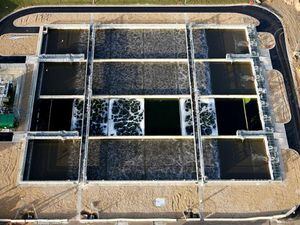Scientists test sewage to track Covid-19 outbreaks
British and Spanish experts have teamed up with water companies to carry out the research.

Scientists are monitoring sewage for traces of Covid-19 to help health experts identify outbreak hotspots.
While the virus does not readily spread through waste water systems, non-infectious genetic residues can be detected.
Scientists from Newcastle University are collaborating with Spanish academics in Santiago de Compostela to monitor sewage in their local networks in both countries, supported by Northumbrian Water and Labaqua in Spain.
Using this analysis, they will be able to estimate the prevalence of Covid-19 in north-east England and across Spain.
The work will not identify if specific people are infected, but will allow researchers to estimate local concentrations of the virus by testing sewage from different locations.
Newcastle University said this could help public health officials identify possible infection hot spots.
Professor of ecosystems engineering David Graham, who is co-leader of the project, said: “Without the capacity to test each person individually, particularly people without symptoms, we have limited information about how widespread the virus is or whether it is affecting some communities more than others.
“Sewage epidemiology is now being used around the world in addressing the Covid-19 pandemic.
“Our work here is to develop local solutions, but also to assist global efforts, by developing tools for predicting spread at a much earlier stage.”
Northumbrian Water’s wastewater director, Richard Warneford, said: “Our wastewater teams are working with their engineers and scientists to safely gather and analyse data and we’re hoping that together we can help make a difference in the battle against Covid-19.”





